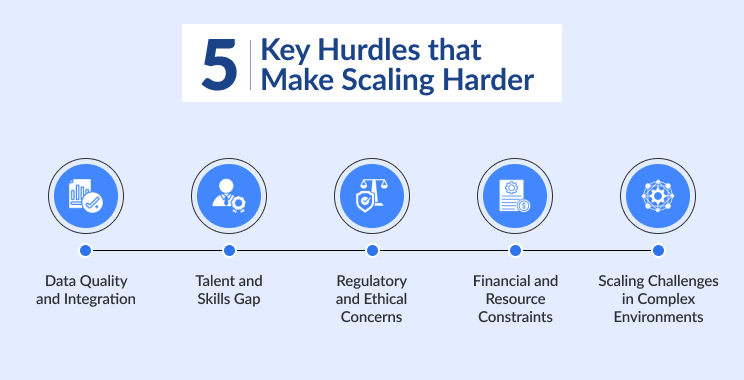The integration of artificial intelligence (AI) in oncology practices presents both a significant opportunity and a challenge for medical practice administrators, owners, and IT managers across the United States. Projections indicate a 48% increase in demand for oncology services, while oncologist supply is expected to grow by only 14%. The sector is at a critical point as the anticipated shortage of 2,550 to 4,080 oncologists by 2020 necessitates healthcare organizations to adapt how they deliver care.
Understanding the Demand-Supply Gap in Oncology Services
The aging population in the United States drives the growing need for oncology services. The number of individuals aged 65 and older is expected to double from 2000 to 2030, leading to an increase in cancer diagnoses. Given this, oncology practices must find innovative ways to meet patient needs and improve outcomes.
AI technologies can enhance diagnostic accuracy, improve treatment planning, and increase efficiency in clinical workflows. AI tools like Flatiron Assist and VieCure are being adopted in several oncology practices, helping clinicians manage treatment planning and execution.
Enhancing Staff Preparedness for AI Integration
For healthcare providers, integrating AI into practice requires new tools and a shift in workflow and mindset. Involving healthcare teams in role-playing scenarios can help staff prepare for using AI technologies in their daily routines. Role-playing offers a practical way to understand how AI impacts clinical duties and patient interactions.
Benefits of Role-Playing for AI Integration
- Simulation of Real-World Scenarios: Role-play helps staff see how AI systems support clinical decision-making and patient management. Scenarios may include using AI for personalized treatment plans, monitoring patient responses, and automating routine office tasks.
- Understanding AI Capabilities: Staff can learn how AI streamlines processes, such as scheduling appointments and sending medication reminders. Knowing these capabilities eases the workload on healthcare providers, which can also improve patient experiences.
- Addressing Concerns and Resistance: AI integration may raise concerns about job displacement or ethical issues. Role-playing allows administrators to tackle these worries, showing that AI aims to support healthcare professionals, not replace them. Staff can express their concerns and get immediate feedback in a safe space.
- Facilitating Team Dynamics: Communication is crucial in healthcare. Role-playing encourages collaboration as staff practice coordinating care using AI tools. This teamwork is important for ensuring everyone understands new procedures involving AI.
Crafting AI-Driven Workflows
AI integration in oncology goes beyond individual tasks; it can change entire workflows, improving both efficiency and care quality. By using AI-powered decision support systems, oncology practices can streamline processes, allowing providers to concentrate more on patient care instead of administrative tasks.
Key Workflow Automations in Oncology Practices
- Data Management: AI can convert unstructured oncology data into structured insights. This helps clinicians make informed decisions based on real-time patient data and health trends. With AI capabilities, practices can manage complex data sets effectively.
- Enhanced Diagnostics: AI algorithms excel at analyzing medical images and genetic data to improve diagnostic accuracy. In oncology, these systems can identify subtle cancerous lesions that might be overlooked, leading to early detection and better patient outcomes.
- Personalized Treatment Plans: AI can tailor cancer treatment plans by considering individual patient profiles, including medical history and lifestyle. This customization is essential for maximizing treatment effectiveness.
- Monitoring and Adaptation: AI continuously monitors patient treatment responses, providing real-time feedback on how well treatments are working. This allows clinicians to adjust plans quickly for improved care quality.
- Predictive Analytics: AI can analyze historical data to identify patients at risk for health issues before symptoms appear. This proactive approach helps practices address potential challenges and increases patient engagement.
Ethical Considerations in AI Integration
As with any new technology, AI brings ethical, legal, and regulatory challenges that require careful consideration. In oncology practices, issues related to patient autonomy, data privacy, and algorithmic bias must be addressed.
- Patient Consent: The use of AI in treatment decisions requires a clear consent process. Patients must be informed about how their data will be used and AI’s role in their care. Clear communication is essential for building trust.
- Data Security: The healthcare sector is vulnerable to cyberattacks, making data protection crucial. Organizations need to implement strong security measures to safeguard patient information. Regular training for staff and updates to protocols are also important.
- Algorithmic Bias: AI systems are only as good as the data they’re trained on. If the data is biased, outcomes may be too. Continuous monitoring of AI systems is necessary to ensure fairness and accuracy in treatment.
- Training Needs: Closing the skills gap is essential for successful AI integration. Healthcare professionals require training to use AI systems effectively. Organizations that invest in ongoing education can achieve better adoption rates.
AI-Driven Tools Enhancing Oncology Care
Various AI platforms have shown value in oncology practices. For example, Flatiron Assist helps clinicians manage patient care effectively within OncoEMR systems. It provides real-time data analysis, enabling informed treatment options. VieCure also utilizes AI to merge diagnostic data with treatment choices for a more efficient decision-making process.
Additionally, MiBA, a division of the American Oncology Network, translates complex oncology data into useful insights that support diverse clinical functions. These tools assist oncologists in optimizing therapies while managing the increasing amount of patient data.
Future Prospects in Oncology
AI’s role in oncology is expanding, with advancements expected to enhance personalized treatment and operational efficiency. Future AI applications may feature predictive analytics tools that recommend interventions earlier. As AI tools continue to develop, healthcare organizations can adjust to new therapies, ensuring alignment with patient care needs.
Staff Engagement in AI Workflow Transformations
Engaging staff in the shift to AI-driven workflows is vital for successful integration. Training programs should prepare healthcare staff for the complexities of using AI in their everyday tasks. These programs could include role-playing exercises, workshops, and simulations to build confidence with new technologies.
Encouraging a culture of continuous learning is also important. As AI technologies advance, feedback loops should be implemented, allowing staff to share experiences. This collective knowledge can lead to improvements in practice and ensure smooth integration.
As AI systems take on routine tasks, oncology practices must focus on their primary goal: delivering quality patient care. Properly preparing healthcare teams for AI integration will allow organizations to tackle the challenges arising from the oncologist shortage while improving patient outcomes through better care delivery.
In summary, the transition to AI-driven workflows in oncology practices involves more than just technology. It requires consideration of staff readiness and ethical implications. With careful implementation, the potential for enhanced patient care and operational efficiency can be realized. Those who adapt to these changes will be better equipped to handle future challenges.
The post Role-Playing for AI Workflows in Oncology Practices: Staff Preparedness first appeared on Simbo AI – Blogs.






